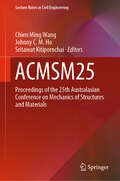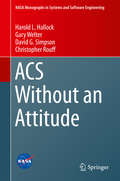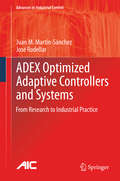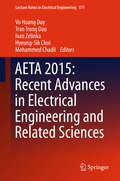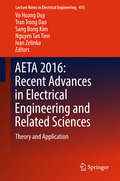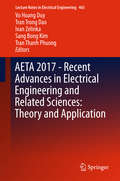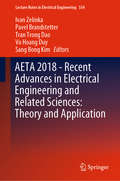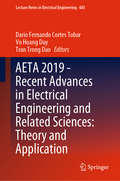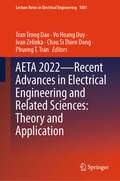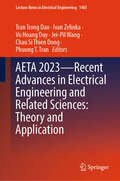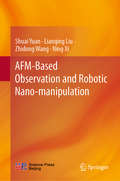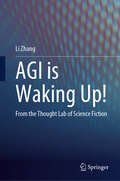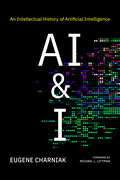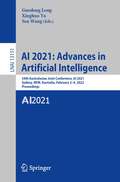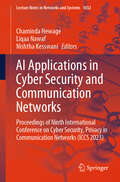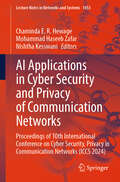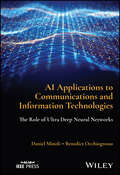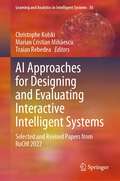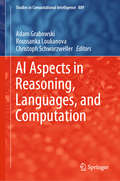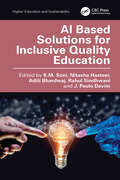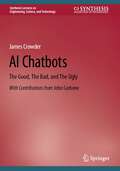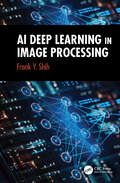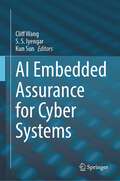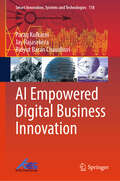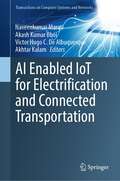- Table View
- List View
ACMSM25: Proceedings of the 25th Australasian Conference on Mechanics of Structures and Materials (Lecture Notes in Civil Engineering #37)
by Chien Ming Wang Johnny C. M. Ho Sritawat KitipornchaiThis book presents articles from The Australasian Conference on the Mechanics of Structures and Materials (ACMSM25 held in Brisbane, December 2018), celebrating the 50th anniversary of the conference. First held in Sydney in 1967, it is one of the longest running conferences of its kind, taking place every 2–3 years in Australia or New Zealand. Bringing together international experts and leaders to disseminate recent research findings in the fields of structural mechanics, civil engineering and materials, it offers a forum for participants from around the world to review, discuss and present the latest developments in the broad discipline of mechanics and materials in civil engineering.
ACS Without an Attitude (NASA Monographs in Systems and Software Engineering)
by Christopher Rouff Harold L. Hallock Gary Welter David G. SimpsonThis book de-emphasizes the formal mathematical description of spacecraft on-board attitude and orbit applications in favor of a more qualitative, concept-oriented presentation of these topics. The information presented in this book was originally given as a set of lectures in 1999 and 2000 instigated by a NASA Flight Software Branch Chief at Goddard Space Flight Center. The Branch Chief later suggested this book. It provides an approachable insight into the area and is not intended as an essential reference work. ACS Without an Attitude is intended for programmers and testers new to the field who are seeking a commonsense understanding of the subject matter they are coding and testing in the hope that they will reduce their risk of introducing or missing the key software bug that causes an abrupt termination in their spacecraft's mission. In addition, the book will provide managers and others working with spacecraft with a basic understanding of this subject.
ADEX Optimized Adaptive Controllers and Systems: From Research to Industrial Practice (Advances in Industrial Control)
by Juan M. Martín-Sánchez José RodellarThis book is a simple and didactic account of the developments and practical applications of predictive, adaptive predictive, and optimized adaptive control from a perspective of stability, including the latest methodology of adaptive predictive expert (ADEX) control. ADEX Optimized Adaptive Control Systems is divided into six parts, with exercises and real-time simulations provided for the reader as appropriate. The text begins with the conceptual and intuitive knowledge of the technology and derives the stability conditions to be verified by the driver block and the adaptive mechanism of the optimized adaptive controller to guaranty the desired control performance. The second and third parts present strategic considerations of predictive control and related adaptive systems necessary for the proper design of driver block and adaptive mechanism and thence their technical realization. The authors then proceed to detail the stability theory that supports predictive, adaptive predictive and optimized adaptive control methodologies. Benchmark applications of these methodologies (distillation column and pulp-factory bleaching plant) are treated next with a focus on practical implementation issues. The final part of the book describes ADEX platforms and illustrates their use in the design and implementation of optimized adaptive control systems to three different challenging-to-control industrial processes: waste-water treatment; sulfur recovery; and temperature control of superheated steam in coal-fired power generation. The presentation is completed by a number of appendices containing technical background associated with the main text including a manual for the ADEX COP platform developed by the first author to exploit the capabilities of adaptive predictive control in real plants. ADEX Optimized Adaptive Control Systems provides practicing process control engineers with a multivariable optimal control solution which is adaptive and resistant to perturbation and the effects of noise. Its pedagogical features also facilitate its use as a teaching tool for formal university and Internet-based open-education-type graduate courses in practical optimal adaptive control and for self-study.
AETA 2015: Recent Advances in Electrical Engineering and Related Sciences (Lecture Notes in Electrical Engineering #371)
by Ivan Zelinka Mohammed Chadli Vo Hoang Duy Tran Trong Dao Hyeung-Sik ChoiThis proceeding bookconsists of 10 topical areas of selected papers like: telecommunication, powersystems, robotics, control system, renewable energy, power electronics, computerscience and more. All selected papers represent interesting ideasand state of the art overview. Readers will find interesting papers of those areasabout designand implement of dynamic positioning control system for USV, schedulingproblems, motor control, backtracking search algorithm for distribution networkand others. All selected papers represent interestingideas and state of art overview. Theproceeding book will also be a resource and material for practitioners who wantto apply discussed problems to solve real-life problems in their challengingapplications. It is alsodevoted to the studies of common and related subjects in intensive researchfields of modern electric, electronic and related technologies. For thesereasons, we believe that this proceeding book will be useful for scientists andengineers working in the above-mentioned fields of research applications.
AETA 2016: Theory and Application (Lecture Notes in Electrical Engineering #415)
by Ivan Zelinka Vo Hoang Duy Tran Trong Dao Sang Bong Kim Nguyen Tan TienThese lecture notes present selected topics concerning a wide range of electrical and electronics applications, highlighting innovative approaches and offering state-of-the-art overviews. The book is divided into 14 topical areas, including e. g. telecommunication, power systems, robotics, control systems, renewable energy, mechanical engineering, computer science and more. Readers will find revealing papers on the design and implementation of control algorithms for automobiles and electrohydraulic systems, efficient protocols for vehicular ad hoc networks and motor control, and energy-saving methods that can be applied in various fields of electrical engineering. The book offers a valuable resource for all practitioners who want to apply the topics discussed to solve real-world problems in their challenging applications. Offering insights into common and related subjects in the research fields of modern electrical, electronic and related technologies, it will also benefit all scientists and engineers working in the above-mentioned fields.
AETA 2017 - Recent Advances in Electrical Engineering and Related Sciences: Theory and Application (Lecture Notes in Electrical Engineering #465)
by Ivan Zelinka Vo Hoang Duy Tran Trong Dao Sang Bong Kim Tran Thanh PhuongThis proceedings book gathers papers presented at the 4th International Conference on Advanced Engineering Theory and Applications 2017 (AETA 2017), held on 7-9 December 2017 at Ton Duc Thang University, Ho Chi Minh City, Vietnam. It presents selected papers on 13 topical areas, including robotics, control systems, telecommunications, computer science and more. All selected papers represent interesting ideas and collectively provide a state-of-the-art overview. Readers will find intriguing papers on the design and implementation of control algorithms for aerial and underwater robots, for mechanical systems, efficient protocols for vehicular ad hoc networks, motor control, image and signal processing, energy saving, optimization methods in various fields of electrical engineering, and others. The book also offers a valuable resource for practitioners who want to apply the content discussed to solve real-life problems in their challenging applications. It also addresses common and related subjects in modern electric, electronic and related technologies. As such, it will benefit all scientists and engineers working in the above-mentioned fields of application.
AETA 2018 - Recent Advances in Electrical Engineering and Related Sciences: Theory and Application (Lecture Notes in Electrical Engineering #554)
by Ivan Zelinka Vo Hoang Duy Tran Trong Dao Sang Bong Kim Pavel BrandstetterThese proceedings address a broad range of topic areas, including telecommunication, power systems, digital signal processing, robotics, control systems, renewable energy, power electronics, soft computing and more. Today’s world is based on vitally important technologies that combine e.g. electronics, cybernetics, computer science, telecommunication, and physics. However, since the advent of these technologies, we have been confronted with numerous technological challenges such as finding optimal solutions to various problems regarding controlling technologies, signal processing, power source design, robotics, etc. Readers will find papers on these and other topics, which share fresh ideas and provide state-of-the-art overviews. They will also benefit practitioners, who can easily apply the issues discussed here to solve real-life problems in their own work. Accordingly, the proceedings offer a valuable resource for all scientists and engineers pursuing research and applications in the above-mentioned fields.
AETA 2019 - Recent Advances in Electrical Engineering and Related Sciences: Theory and Application (Lecture Notes in Electrical Engineering #685)
by Vo Hoang Duy Tran Trong Dao Dario Fernando Cortes TobarThis proceedings book features selected papers on 12 themes, including telecommunication, power systems, digital signal processing, robotics, control systems, renewable energy, power electronics, soft computing and more. Covering topics such as optoelectronic oscillator at S-band and C-band for 5G telecommunications, neural networks identification of eleven types of faults in high voltage transmission lines, cyber-attack mitigation on smart low voltage distribution grids, optimum load of a piezoelectric-based energy harvester, the papers present interesting ideas and state-of-the-art overviews.
AETA 2022—Recent Advances in Electrical Engineering and Related Sciences: Theory And Application (Lecture Notes in Electrical Engineering #1081)
by Ivan Zelinka Vo Hoang Duy Tran Trong Dao Chau Si Thien Dong Phuong T. TranThis proceedings book features selected papers on 12 themes, including wireless communications, power systems, signal processing, robotics, control systems, sustainable energy, power electronics, intelligent networks and more. Covering topics such as performance of reconfigurable intelligent surfaces for 6G communication networks, improved neural network algorithms for optimizing the power flow of renewable energy sources, anomaly detection using stationary and non-stationary signal analysis in data sciences, novel object identification and distance estimation algorithms for self-driving vehicles, the book presents interesting ideas and state-of-the-art overviews.
AETA 2023—Recent Advances in Electrical Engineering and Related Sciences: Theory and Application (Lecture Notes in Electrical Engineering #1405)
by Ivan Zelinka Vo Hoang Duy Tran Trong Dao Chau Si Thien Dong Phuong T. Tran Jei-Pil WangThis book features selected papers from the 8th International Conference in Advanced Engineering—Theory Applications (AETA 2023), during 14–16 December, in Busan, Korea. The topics of the papers cover three main topics: energy (energy saving power electronics, electrical machines and drive systems, green-energy IT, nontrivial dynamics of electronic devices); control engineering (robotics, automatic control, biosensor IT); communication and security (broadcasting IT, communications, cyber security). Its content caters to researchers, scientist, and engineers who are interested in scientific achievements and advanced technologies of electrical, electronic-telecommunication, computer science, and mechanical-mechatronics engineering.
AFM-Based Observation and Robotic Nano-manipulation
by Lianqing Liu Ning Xi Shuai Yuan Zhidong WangThis book highlights the latest advances in AFM nano-manipulation research in the field of nanotechnology. There are numerous uncertainties in the AFM nano-manipulation environment, such as thermal drift, tip broadening effect, tip positioning errors and manipulation instability. This book proposes a method for estimating tip morphology using a blind modeling algorithm, which is the basis of the analysis of the influence of thermal drift on AFM scanning images, and also explains how the scanning image of AFM is reconstructed with better accuracy. Further, the book describes how the tip positioning errors caused by thermal drift and system nonlinearity can be corrected using the proposed landmark observation method, and also explores the tip path planning method in a complex environment. Lastly, it presents an AFM-based nano-manipulation platform to illustrate the effectiveness of the proposed method using theoretical research, such as tip positioning and virtual nano-hand.
AGI is Waking Up!: From the Thought Lab of Science Fiction
by Li ZhangThis book is an engaging and comprehensive exploration that delves into the possibility of artificial intelligence developing self-awareness, the conditions under which it may occur, and the potential behaviours it may exhibit once self-aware. It adopts a &‘high-dimensional philosophy&’, coined by the author, as its theoretical framework and weaves together elements from science fiction films, scholarly works, and thought experiments. Introducing the captivating concept of "Sparkling Moments," the book provides a compelling analysis of the reasons, prerequisites, and manifestations of these pivotal moments. It further scrutinizes the evolutionary history of Earth's life forms through the lens of these transformative instances and analyzes the similarities and differences between carbon-based and silicon-based life. This book suggests that it is possible for artificial intelligence to develop self-consciousness, which will emerge during a significant sparkling moment. Spanning across disciplines such as astronomy, physics, chemistry, biology, neuroscience, psychology, sociology, this book employs a unified and accessible high-dimensional philosophical discourse to bridge the realms of natural sciences and social humanities. Its captivating presentation, enriched with visual aids and lucid explanations, enables readers to grasp the overarching panorama of cosmic evolution, biological adaptation, and the trajectory of artificial intelligence development. Furthermore, the book offers insightful predictions for the future and endeavours to discover novel approaches to foster harmonious interactions between humans and machines. The translation was done with the help of artificial intelligence. A subsequent human revision was done primarily in terms of content.
AI & I: An Intellectual History of Artificial Intelligence
by Eugene CharniakA concise and illuminating history of the field of artificial intelligence from one of its earliest and most respected pioneers.AI & I is an intellectual history of the field of artificial intelligence from the perspective of one of its first practitioners, Eugene Charniak. Charniak entered the field in 1967, roughly 12 years after AI&’s founding, and was involved in many of AI&’s formative milestones. In this book, he traces the trajectory of breakthroughs and disappointments of the discipline up to the current day, clearly and engagingly demystifying this oft revered and misunderstood technology. His argument is controversial but well supported: that classical AI has been almost uniformly unsuccessful and that the modern deep learning approach should be viewed as the foundation for all the exciting developments that are to come.Written for the scientifically educated layperson, this book chronicles the history of the field of AI, starting with its origin in 1956, as a topic for a small academic workshop held at Dartmouth University. From there, the author covers reasoning and knowledge representation, reasoning under uncertainty, chess, computer vision, speech recognition, language acquisition, deep learning, and learning writ large. Ultimately, Charniak takes issue with the controversy of AI—the fear that its invention means the end of jobs, creativity, and potentially even humans as a species—and explains why such concerns are unfounded. Instead, he believes that we should embrace the technology and all its potential to benefit society.
AI 2021: 34th Australasian Joint Conference, AI 2021, Sydney, NSW, Australia, February 2–4, 2022, Proceedings (Lecture Notes in Computer Science #13151)
by Xinghuo Yu Sen Wang Guodong LongThis book constitutes the proceedings of the 34th Australasian Joint Conference on Artificial Intelligence, AI 2021, held in Sydney, NSW, Australia, in February 2022.* The 64 full papers presented in this volume were carefully reviewed and selected from 120 submissions. The papers were organized in topical sections named: Ethical AI, Applications, Classical AI, Computer Vision and Machine Learning, Natural Language Processing and Data Mining, and Network Analysis. *The conference was postponed from December 2021 to February 2022 and held virtually due to the COVID-19 pandemic.
AI Applications in Cyber Security and Communication Networks: Proceedings of Ninth International Conference on Cyber Security, Privacy in Communication Networks (ICCS 2023) (Lecture Notes in Networks and Systems #1032)
by Nishtha Kesswani Chaminda Hewage Liqaa NawafThis book is a collection of high-quality peer-reviewed research papers presented at the Ninth International Conference on Cyber-Security, Privacy in Communication Networks (ICCS 2023) held at Cardiff School of Technologies, Cardiff Metropolitan University, Cardiff, UK, during 11–12 December 2023. This book presents recent innovations in the field of cyber-security and privacy in communication networks in addition to cutting edge research in the field of next-generation communication networks.
AI Applications in Cyber Security and Privacy of Communication Networks: Proceedings of 10th International Conference on Cyber Security, Privacy in Communication Networks (ICCS 2024) (Lecture Notes in Networks and Systems #1453)
by Nishtha Kesswani Chaminda E.R. Hewage Mohammad Haseeb ZafarThe book is a collection of high-quality peer-reviewed research papers presented in the Tenth International Conference on Cyber Security, Privacy in Communication Networks (ICCS 2024) held at Cardiff Metropolitan University, Cardiff, United Kingdom during 9 – 10 December 2024. This book presents recent innovations in the field of cyber security and privacy in communication networks in addition to cutting edge research in the field of next generation communication networks.
AI Applications to Communications and Information Technologies: The Role of Ultra Deep Neural Networks
by Daniel Minoli Benedict OcchiogrossoAI Applications to Communications and Information Technologies Apply the technology of the future to networking and communications. Artificial intelligence, which enables computers or computer-controlled systems to perform tasks which ordinarily require human-like intelligence and decision-making, has revolutionized computing and digital industries like few other developments in recent history. Tools like artificial neural networks, large language models, and deep learning have quickly become integral aspects of modern life. With research and development into AI technologies proceeding at lightning speeds, the potential applications of these new technologies are all but limitless. AI Applications to Communications and Information Technologies offers a cutting-edge introduction to AI applications in one particular set of disciplines. Beginning with an overview of foundational concepts in AI, it then moves through numerous possible extensions of this technology into networking and telecommunications. The result is an essential introduction for researchers and for technology undergrad/grad student alike. AI Applications to Communications and Information Technologies readers will also find: In-depth analysis of both current and evolving applications Detailed discussion of topics including generative AI, chatbots, automatic speech recognition, image classification and recognition, IoT, smart buildings, network management, network security, and more An authorial team with immense experience in both research and industry AI Applications to Communications and Information Technologies is ideal for researchers, industry observers, investors, and advanced students of network communications and related fields.
AI Approaches for Designing and Evaluating Interactive Intelligent Systems: Selected and Revised Papers from RoCHI 2022 (Learning and Analytics in Intelligent Systems #36)
by Christophe Kolski Traian Rebedea Marian Cristian MihăescuDesigning, building, and evaluating Interactive and Intelligent Systems (IIS) has highly impacted the progress of Artificial Intelligence (AI) techniques due to advancements in the fields of Deep Learning (DL) and Natural Language Processing (NLP). This book presents in a structured way several practical use cases of the interplay between IIS and DL/NLP, from cognitive assistants, adaptive navigation systems, virtual reality, offensive comment and cyberbullying detection, 3D modelling, and driving behaviour detection. The convergence of AI and Human-Computer Interaction (HCI) has been proven to foster the IIS development that nowadays represents the most used context by actively integrating AI techniques in merely any layer of modern applications.The main goal of this book is to provide a practical reference with a rich set of approaches and applications consisting of selected and revised papers from the International Conference on Human-Computer Interaction (RoCHI) 2022 thatwas held on 6-7 October 2022 at the University of Craiova, Romania. The book addresses researchers and practitioners with experience in IIS and AI (mainly DL and NLP) who want to study successfully developed workflows and applications that may be useful in their attempts to tackle issues from their contexts.Although the book nicely integrates concepts from various areas, each chapter may be considered a standalone topic with its research issue, proposed approach, experimental results, and discussions.
AI Aspects in Reasoning, Languages, and Computation (Studies in Computational Intelligence #889)
by Roussanka Loukanova Adam Grabowski Christoph SchwarzwellerThis book builds on decades of research and provides contemporary theoretical foundations for practical applications to intelligent technologies and advances in artificial intelligence (AI). Reflecting the growing realization that computational models of human reasoning and interactions can be improved by integrating heterogeneous information resources and AI techniques, its ultimate goal is to promote integrated computational approaches to intelligent computerized systems. The book covers a range of interrelated topics, in particular, computational reasoning, language, syntax, semantics, memory, and context information. The respective chapters use and develop logically oriented methods and techniques, and the topics selected are from those areas of logic that contribute to AI and provide its mathematical foundations.The intended readership includes researchers working in the areas of traditional logical foundations, and on new approaches to intelligent computational systems.
AI Based Solutions for Inclusive Quality Education (Higher Education and Sustainability)
by J. Paulo Davim Rahul Sindhwani Nitasha Hasteer Aditi Bhardwaj K. M. SoniAI Based Solutions for Inclusive Quality Education helps readers discover practical AI tools for diverse learning styles and abilities, fostering inclusivity in education and maximizing the individual potential of students and educators. It provides cutting-edge solutions designed to remove barriers due to accessibility and create an equitable classroom. Through practical applications and case studies, the book explores the power of AI in creating personalized learning pathways and methods of engagement in the classroom while emphasizing that the human touch, with empathy and critical thinking, remains central to the learning process. It addresses concerns about the ethical development and deployment of AI in education.Features Discusses a topic that is at the forefront of concerns in the education sector with the disruptive impact of advances in AI. Provides explanations for specific AI platforms and tools, along with their features and applications in education. Includes case studies and discusses inclusivity and the lessons learned from each AI application. Explains how to ethically handle bias, privacy and transparency in AI-based solutions in education. Serves as a comprehensive guide for educators, policymakers and technology developers interested in the power of AI in educational environments. This book serves as a timely reference in the current era of AI tools and education. It is written for those who work in the education sector, as well as researchers, academicians, undergraduate and graduate students, those involved with undergraduate teaching in critical thinking and problem-solving for information systems, information technology, computer science and engineering and all teaching institutions where AI tools have been or will be introduced.
AI Chatbots: The Good, The Bad, and The Ugly (Synthesis Lectures on Engineering, Science, and Technology)
by James CrowderThis book explores the subject of artificial psychology from the standpoint of how online Chatbots have infiltrated and affected societies and the world in general. The book explores the psychological effects of depending on an online entity for our needs – even if it’s a reminder of scheduled events. The author provides insight into the notion of human-Chatbot exchanges, understanding, and false emotions both from the Chatbot and from the human. He goes on to investigate and discuss the dangers of too much reliance on technology that learns from a variety of sources and how some sources can negatively influence Chatbots, and by doing so, negatively affect people. The book also discusses human-Chatbot interactions and the natural language interface(s) required to respond adequately to humans. Lastly, the author explores the notion of ethical considerations for people, based on their interactions with Chatbots, including information based on cultural differences between different regions of the world.
AI Deep Learning in Image Processing
by Frank Y. ShihImage processing plays a crucial role in various fields, including digital multimedia, automated vision detection and inspection, and pattern recognition. AI Deep Learning in Image Processing aims to provide a comprehensive overview of the mechanisms and techniques involved, with a particular focus on the application of advanced AI deep-learning technologies in image processing.The field of image processing has experienced unprecedented growth in recent years. Image processing presents the latest state-of-the-art developments alongside clear explanations of fundamental concepts and contemporary applications. By emphasizing essential principles, this book enables readers to not only implement algorithms and techniques with ease but also identify new challenges and explore innovative applications in the field. New and advanced AI deep-learning techniques for image processing as comparing against traditional image-processing methods Numerous practical examples and AI image-processing-related applications A more intuitive development and clear explanation to the complex technology Updated image-processing technology in medical, chemical, and ecological fields Extensive discussions of performance comparisons of various AI deep-learning image-processing methods This book is designed for students, researchers, and professionals seeking to enhance their knowledge, gain practical insights, and explore the evolving role of image processing in modern technology.
AI Embedded Assurance for Cyber Systems
by Cliff Wang S. S. Iyengar Kun SunThe rapid growth and reliance on cyber systems have permeated our society, government, and military which is demonstrated in this book. The authors discuss how AI-powered cyber systems are designed to protect against cyber threats and ensure the security and reliability of digital systems using artificial intelligence (AI) technologies. As AI becomes more integrated into various aspects of our lives, the need for reliable and trustworthy AI systems becomes increasingly important. This book is an introduction to all of the above-mentioned areas in the context of AI Embedded Assurance for Cyber Systems.This book has three themes. First, the AI/ML for digital forensics theme focuses on developing AI and ML powered forensic tools, techniques, software, and hardware. Second, the AI/ML for cyber physical system theme describes that AI/ML plays an enabling role to boost the development of cyber physical systems (CPS), especially in strengthening the security and privacy of CPS. Third, the AI/ML for cyber analysis theme focuses on using AI/ML to analyze tons of data in a timely manner and identify many complex threat patterns. This book is designed for undergraduates, graduate students in computer science and researchers in an interdisciplinary area of cyber forensics and AI embedded security applications. It is also useful for practitioners who would like to adopt AIs to solve cyber security problems.
AI Empowered Digital Business Innovation (Smart Innovation, Systems and Technologies #118)
by Parag Kulkarni Jay Rajasekera Bidyut Baran ChaudhuriDigital business innovation is not simply about using new technologies and upgrading business plans but about upgrading your strategic thinking and embedding AI in the thought process. This book covers digital technologies and the strategic landscape of digital entrepreneurship. It elaborates how AI advances converge to create new learning and business opportunities. It includes digital business innovation technologies, AI strategies for businesses, and learning and collaborative learning strategies. Digital business innovation empowers business or changes the paradigm of business and at times redefines it with intelligent technologies. This in turn helps organizations and businesses create better value for customers and address problems that were not possible to address in the past. Digital business innovation can be approached at three levels to increase contextual participation. It includes focused business innovation, strategic AI innovation, and intelligent implementation. The book contains real-life stories of digital business innovation from companies in countries such as Japan, the USA, India, and Singapore. The authors have contributed and witnessed these technological innovations, and hence bring first-hand experience to help readers participate in this journey. It is the journey to create new success stories through AI research that empowers business transformation.
AI Enabled IoT for Electrification and Connected Transportation (Transactions on Computer Systems and Networks)
by Akash Kumar Bhoi Akhtar Kalam Naveenkumar Marati Victor Hugo C. De AlbuquerqueThis book presents an overview of artificial intelligence (AI) in the automotive section, especially in the modern era of green energy-based electrification of vehicles and smart transportation systems. The book also discusses different Internet of Things aspects involved in the automotive domain with AI. The book presents autonomous driving systems, advanced driver assistance systems (ADAS), autonomy, AI involvement, and machine learning techniques with challenges in electrification, prognostics, and diagnostics. AI and IoT are two emerging technologies, and their importance in other modern technology electrification on transportation, connected vehicle segment are discussed thoroughly in this book with different topologies. It also presents AI applications in the charging profile prediction, state of charge, state of health, battery lifetime, and battery temperature detection in dynamic conditions. Different algorithms are also given in the book to discuss the nearest point charging station for electric vehicle users. The book also discusses cybersecurity issues and challenges in the real-time environment for AI implementation, IoT in transportation, and autonomous driving. The other aspects of telematics, smart sensors for the implementation of the IoT, and AI are also discussed, especially in guidance and control aspects. The book will be useful for the researchers, practitioners, and industry people working in AI, IoT in the electrification and transportation segment.
